Cane Corsos, majestic and powerful, are a part of the Mastiff family. These dogs have been trusted protectors, loyal companions, and, surprisingly, even farmhands in their storied history. Given their large size and musculature, it is essential to ensure they get the right nutrition to maintain their health and energy. One common question among Cane Corso owners, especially those new to the breed, is: “How much should I feed my Cane Corso?” In this article, we’ll delve into the specifics, keeping in mind that food amounts will vary based on the calorie content of the chosen dog food.
1. Understanding Cane Corso’s Nutritional Needs
Cane Corsos, being a large breed, have specific dietary requirements. They need a balanced diet that supports their bone growth, maintains muscle mass, and keeps their energy consistent. Proteins, fats, and certain carbohydrates play a crucial role in achieving this balance.
The ideal dog food for a Cane Corso would contain high-quality animal proteins, healthy fats, essential vitamins and minerals, and a reasonable amount of carbs. While it’s possible to meet these requirements with both commercial and homemade diets, it’s essential always to consult with a veterinarian to ensure nutritional adequacy.
2. Amount to Feed Based on Age and Activity Level
Puppies (2 – 6 months):
Given their rapid growth rate, Cane Corso puppies require more frequent meals. Feeding them 3 to 4 times a day with a total of 3-4 cups of high-quality puppy food (specific to large breeds) is recommended.
Adolescents (6 months – 1 year):
As they approach their first year, their growth rate slows down. Feeding them 2-3 times daily with a total of 4-6 cups is usually sufficient.
Adults (1 year and above):
Adult Cane Corsos, depending on their activity level, will require anywhere from 4 to 6 cups of adult dog food daily, typically split into two meals.
Seniors (8 years and above):
Senior Cane Corsos have a slower metabolism. Depending on their health status, they might need fewer calories. Typically, 3-5 cups of senior dog food daily will suffice.
3. Calculating Based on Caloric Content
While cup measurements provide a simple guideline, it’s crucial to adjust based on the caloric content of your chosen dog food. For instance, if your dog food provides 400 kcal per cup and your adult Cane Corso needs around 2000 kcal per day, you would feed them 5 cups daily.
4. Monitoring Your Cane Corso’s Weight
Regularly monitoring your Cane Corso’s weight is essential. If they are gaining unnecessary weight, reduce their food intake slightly. Conversely, if they are losing weight or appear undernourished, consider increasing the food amount or switching to a more nutritious brand.
5. Cost Estimate Per Month
The cost of feeding a Cane Corso will largely depend on the brand and quality of the dog food. On average, a high-quality dog food bag containing 30 lbs might cost anywhere from $50 to $80. If an adult Cane Corso consumes around 5 cups daily, a 30 lb bag should last roughly a month, making the monthly feeding cost anywhere from $50 to $80. Remember, treats, supplements, and potential veterinary dietary recommendations might add to this monthly expense.
Our 5 Top Foods for Cane Corsos
The diets were selected by our founder Justin Palmer, a certified canine nutrition expert, specifically with Cane Corsos in mind:
| Food | Pros | Cons |
|---|---|---|
|
|
|
|
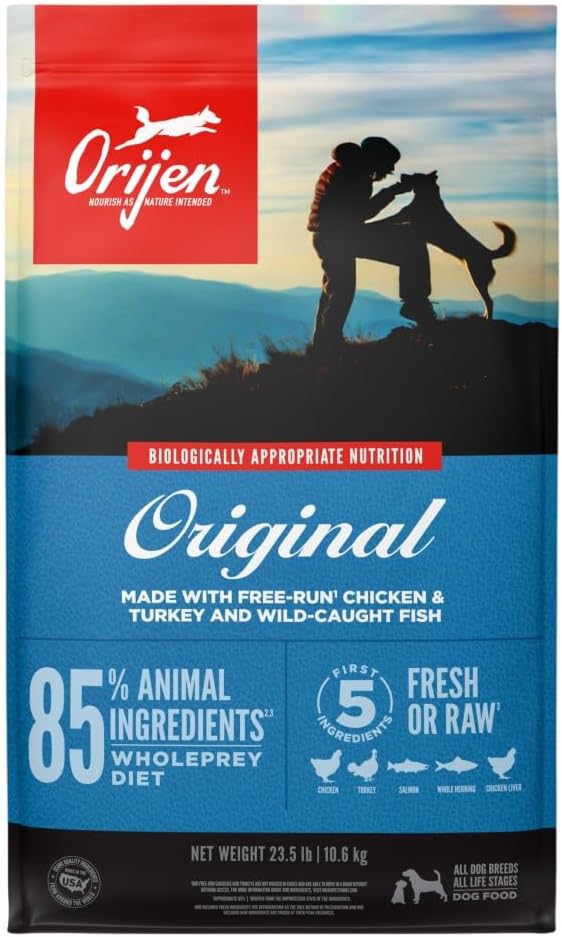
Check Today's Price on: |
|
|
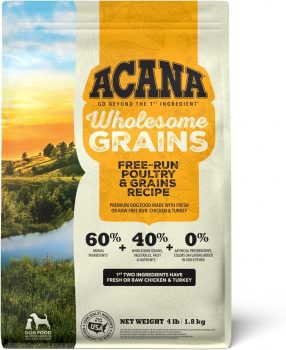
Check Today's Price on: |
|
|
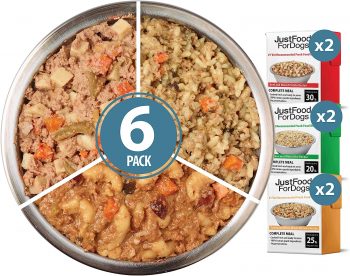
Check Today's Price on: |
|
|
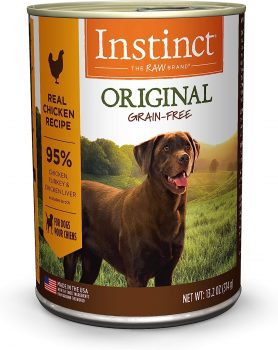
Check Today's Price on: |
|
|
Conclusion
Feeding your Cane Corso the right amount and type of food is crucial for their overall health and longevity. While the guidelines provided can offer a starting point, always pay attention to your dog’s specific needs, consult with your veterinarian, and adjust as necessary. A well-fed Cane Corso is a happy, healthy, and loyal companion.
Frequently Asked Questions About Feeding a Cane Corso
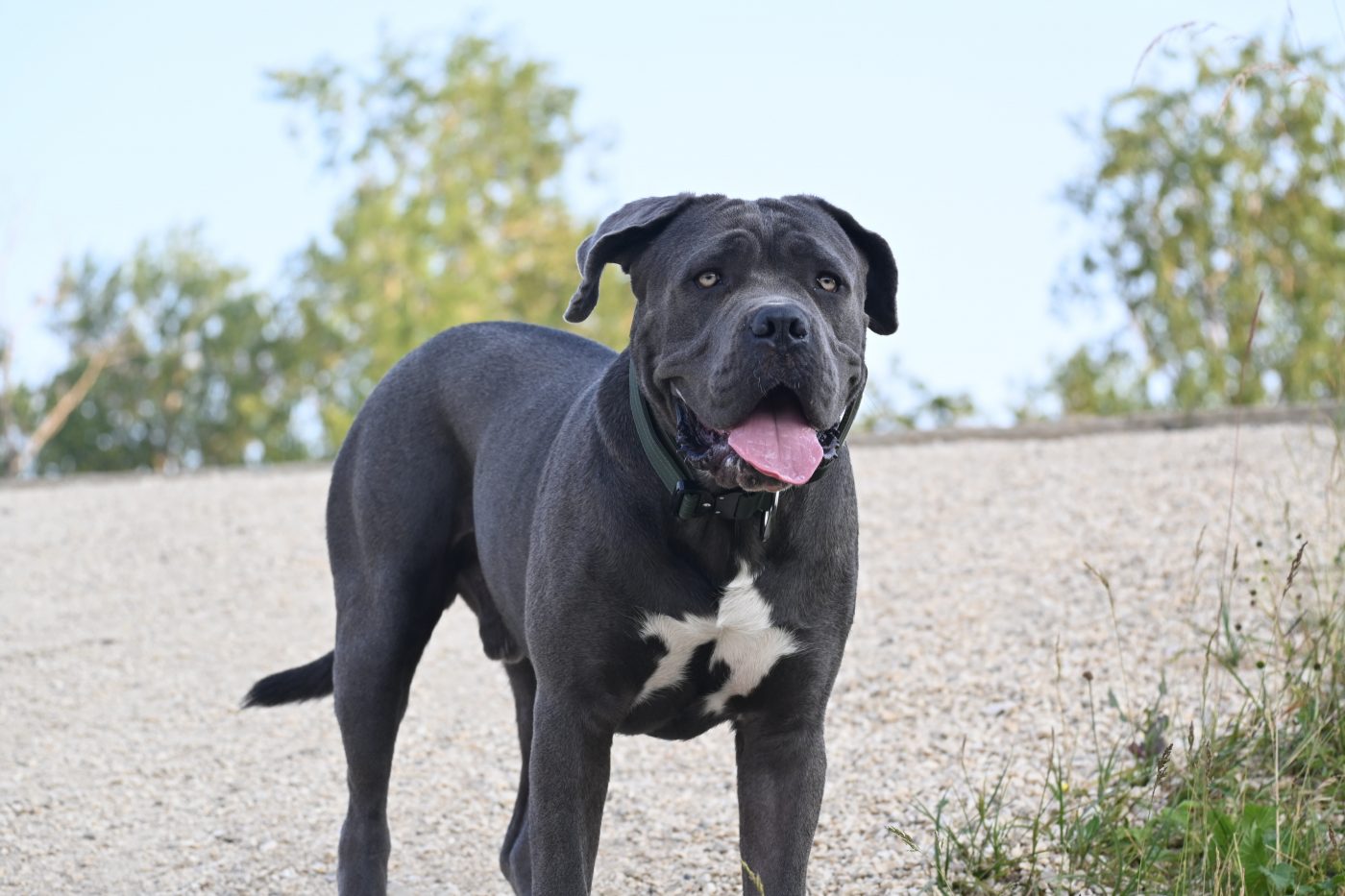
1. How many times a day should I feed my Cane Corso puppy?
Cane Corso puppies, especially those between 2 to 6 months, require more frequent meals due to their rapid growth. It’s advisable to feed them 3 to 4 times a day. As they grow and approach their first year, you can reduce this frequency to 2-3 times daily.
2. Can I feed my Cane Corso a raw diet?
Yes, some owners choose to feed their Cane Corso a raw or “BARF” (biologically appropriate raw food) diet. However, if you decide to go this route, it’s essential to do thorough research and consult with a veterinarian to ensure your dog gets all the necessary nutrients.
3. How do I know if I’m overfeeding or underfeeding my Cane Corso?
Regularly monitoring your Cane Corso’s weight and body condition is crucial. If your dog seems to gain unnecessary weight or has visible fat deposits, you might be overfeeding. Conversely, if ribs are easily felt without a layer of fat or muscle, you may be underfeeding.
4. What kind of treats are suitable for Cane Corsos?
Opt for high-quality treats made with natural ingredients. Treats should only constitute a small portion of their daily caloric intake. Consider treats that promote dental health or offer joint support, especially for older dogs.
5. Are grains bad for Cane Corsos?
Grains are not inherently bad for Cane Corsos or most dogs. However, some dogs might have grain allergies or sensitivities. If you suspect this, consult a vet and consider grain-free alternatives.
6. How much water should a Cane Corso drink daily?
A general rule of thumb is that dogs should drink an ounce of water per pound of body weight daily. Given Cane Corsos’ size, they’ll typically need more water than smaller breeds. Always ensure fresh water is available.
7. Is it okay to switch my Cane Corso’s dog food brand?
Yes, but any change in diet should be gradual to avoid digestive upset. Start by mixing a small amount of the new food with the old and gradually increase the new food’s proportion over 7-10 days.
8. Are supplements necessary for Cane Corsos?
While a balanced diet should provide all the necessary nutrients, some owners choose to add supplements like fish oil for skin and coat health or glucosamine for joint support. Consult with your veterinarian before introducing any supplements.
9. Can Cane Corsos eat fruits and vegetables?
Yes, many fruits and vegetables are safe and beneficial for dogs. Apples, blueberries, carrots, and green beans are among those commonly given as treats. However, avoid grapes, raisins, onions, and garlic as they can be toxic to dogs.
10. How do I transition my Cane Corso from puppy food to adult food?
The transition should be gradual, over 7-10 days. Start by mixing a small amount of adult food with the puppy food. Gradually increase the adult food’s proportion until you’re only feeding the adult formula.
 Check Today's Price on:
Check Today's Price on: Toledo, United States.
Toledo, United States.